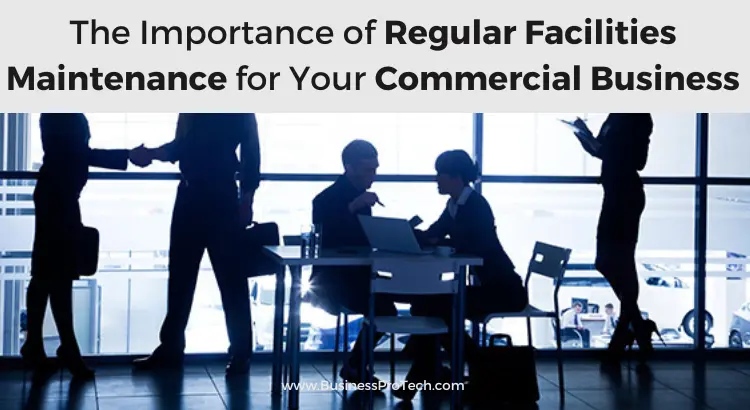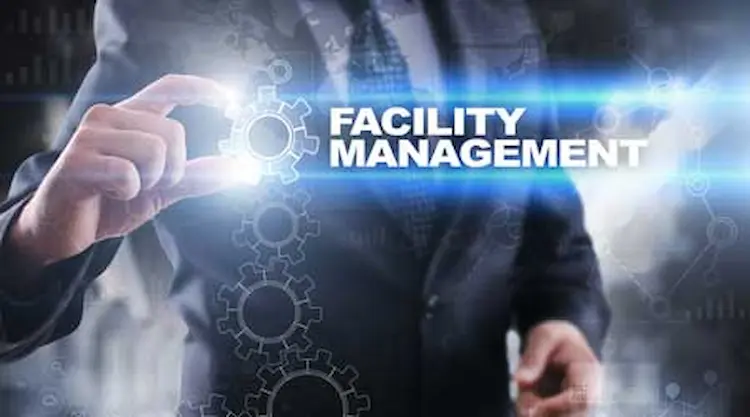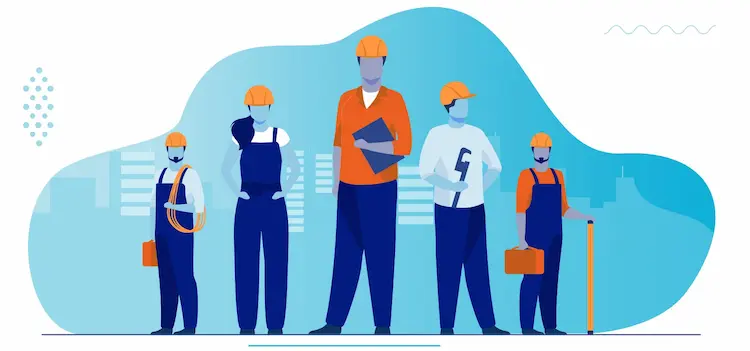Are you a business owner who wants to ensure your commercial space runs like a well-oiled machine? Look no further! In today’s fast-paced and competitive world, the success of your business greatly relies on the functionality and aesthetics of your facilities. To keep things running smoothly, regular maintenance is not just an option—it’s an absolute necessity.

The Concept of Facilities Maintenance and its Importance for Commercial Businesses
Facilities maintenance refers to the overall upkeep, repair, and management of facilities such as buildings, equipment, and grounds in order to ensure they are safe and functional for use. This includes tasks such as cleaning, janitorial services, HVAC care, plumbing repairs, electrical work, landscaping, and more.
For commercial businesses, facility maintenance is of utmost importance. It not only ensures that the physical assets of a business are well-maintained but also plays a crucial role in maintaining productivity levels and ensuring a positive image for the company. So, let’s discuss the concept of facility maintenance – since we should always strive to learn more about why it is critical for commercial businesses to prioritize regular maintenance.
Related Post: 9 Things Needed to Start a Commercial Cleaning Business
Why Regular Facility Maintenance is Crucial for the Success of a Commercial Business
Facility maintenance is an essential aspect of running a successful commercial business. It refers to the routine upkeep and repairs of the physical assets and infrastructure within a building or property.
Regular facility maintenance is crucial for the success of any commercial business for several reasons:
- Ensures Safety and Comfort: Regular facility maintenance is crucial for the safety and comfort of employees, customers, and visitors. It prevents potential hazards like electrical issues and maintains clean and safe access areas.
- Enhances Efficiency: Maintenance keeps equipment in optimal condition, reducing disruptions and downtime, ensuring smooth operations, and saving time and money.
- Protects and Extends Asset Life: Maintenance safeguards investments by preventing wear and tear, such as roof damage and HVAC inefficiency, which can lead to costly replacements.
- Improves Aesthetic Appeal: Regular upkeep, landscaping, and cleaning enhance the building’s appearance, creating a positive impression and attracting customers.
- Saves Money Long-Term: Though it requires an initial investment, regular care prevents costly repairs or replacements by addressing small issues before they escalate.
Common Areas That Require Regular Maintenance in a Commercial Business

In a commercial business, regular facility maintenance is crucial for the smooth operation of day-to-day activities. This not only keeps the premises clean and safe but also ensures that all equipment and facilities are functioning efficiently. While there are various areas in a commercial space that need to be regularly maintained, some may require more attention than others.
In this section, we will discuss common areas that require regular maintenance in a commercial business.
- HVAC Systems: HVAC systems are vital for maintaining indoor comfort and air quality. Regular maintenance involves cleaning or replacing air filters, checking refrigerant levels, inspecting ductwork for leaks, and ensuring thermostat functionality.
- Plumbing: Plumbing issues disrupt daily operations. Regular maintenance includes inspecting pipes for leaks, checking water pressure, cleaning drains, fixing fixtures, and ensuring backflow preventers work.
- Electrical Systems: Electrical systems power essential devices. Maintenance includes checking to wire, testing circuit breakers, inspecting outlets and switches, and ensuring equipment functions to prevent hazards or outages.
- Flooring: Commercial flooring faces heavy foot traffic. Care involves daily cleaning, immediate spill cleanup, periodic carpet shampooing, and waxing or polishing hard floors for durability.
- Restrooms: Hygiene is crucial in restrooms. Maintenance includes disinfecting sinks, toilets, and mirrors, restocking supplies, unclogging drains, and making repairs.
- Outdoor Areas: Exterior maintenance creates a good impression. Tasks include debris removal, shrub/tree trimming, trash bin care, building exterior/roof checks, and addressing safety hazards.
- Break Rooms/Kitchens: Employee gathering areas need regular upkeep. Upkeep includes cleaning appliances, restocking supplies, and disinfecting surfaces.
- Fire Safety Systems: Various fire safety systems ensure protection in emergencies. Care tasks include testing alarms, inspecting extinguishers, checking emergency lighting, and clearing fire exits.
How to Create a Facilities Maintenance Plan for Your Commercial Business
Creating a facilities maintenance plan for your commercial business is essential in order to keep your building and assets in good condition.

Here are the steps to follow when creating a facilities maintenance plan for your commercial business:
- Identify Maintenance Needs: First, identify your building’s maintenance needs, focusing on materials, equipment, and systems like HVAC, plumbing, and electrical for office buildings.
- Determine Inspection Frequency: Decide how often to inspect areas based on factors like equipment age and usage intensity.
- Create a Checklist: Develop a checklist covering all keeping items, including lighting, fire systems, doors, windows, and parking lots.
- Prioritize by Importance: Assign priorities to ensure resources are allocated effectively, considering the consequences of component failures.
- Plan for Emergencies: Establish a protocol for emergency repairs, maintain a list of reliable repair services, and create an emergency fund.
- Schedule Regular Tasks: Create a maintenance schedule based on your checklist and priorities, with daily, weekly, bi-weekly, or monthly tasks.
- Assign Responsibilities: Identify responsible individuals, either by hiring a facilities care professional or assigning duties to existing staff.
- Keep Detailed Records: Maintain thorough records of maintenance activities, schedules, and expenses for tracking progress and future budgeting.
- Review and Revise: Regularly review and revise your facility care plan to ensure it remains effective and adaptable.
Conclusion
In conclusion, a well-crafted facilities maintenance plan is not only essential for the seamless operation and prolonged success of your commercial enterprise but also for ensuring the safety, comfort, and satisfaction of your employees, customers, and visitors.
Also, a proactive approach to facility maintenance can lead to improved efficiency in daily operations. Timely inspections and repairs help prevent downtime and disruptions caused by equipment failures or infrastructure issues. This ensures that your business continues to operate smoothly, leading to increased productivity and customer satisfaction.
Lastly, remember that a facility care plan is not static; it’s a living document that requires periodic review and adjustment. As your business evolves and grows, your maintenance needs may change as well. Therefore, regularly revisiting and revising your plan will help you stay adaptable and responsive to your business’s evolving requirements, ultimately contributing to your long-term success.